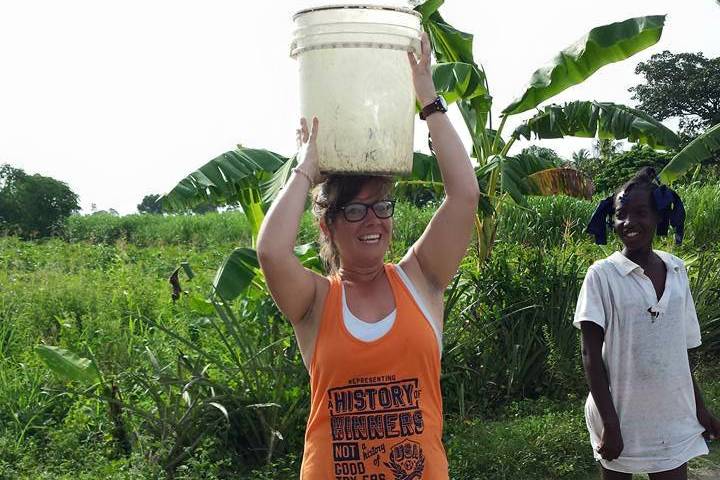
Lydia Bradford came to Duke from Oklahoma City four years ago expecting to immerse herself in global health issues. But when she discovered that Duke offered Creole language courses, her plans changed.
Having learned some about Haiti in middle and high school, Bradford enrolled in one Creole course, and then another, and soon enough she was involved in the Franklin Humanities Institute’s Haiti Lab, taking three courses along with an independent study and two trips to Haiti.
Earlier this month, Bradford received a bachelor of arts in Romance Studies, becoming the first Duke student to write an undergraduate honors thesis in Creole.
Here, Bradford talks with Duke Today about her academic journey and love of Creole.
The Creole program at Duke is still fairly young. What made you go in that direction, and what was your experience like?
To have a concentration in Haitian Creole, the department told me that I had to write a thesis to show my proficiency. In hearing this, I actually assumed that my thesis had to be written in Haitian Creole, so from the beginning, I had already planned to write it in Creole. In addition to this, throughout the Haitian Creole program our professor, Jacques Pierre, always encouraged us to understand the importance of fighting for the language in the language itself. This Haitian Creole program at Duke is great, and very encouraging. Jacques Pierre teaches all the levels and the way he integrates the language, history and culture into the classes was good. I learned a ton and by my second semester of Creole, I was speaking Creole comfortably. I was never afraid to speak in class, and that in turn helped my Creole immensely.
Is there a Creole-speaking community here large enough for you to hone and keep up your language skills? How about when you graduate? What are your plans?
There is a small Creole-speaking community in Durham that I got to know while at Duke; however, the biggest help in honing my language skill was my friend Tanya Thomas, who is a Haitian-American student at Duke. She would speak with me in Creole and correct all of my mistakes. It was always a huge help.
In addition to Tanya and the small Haitian community, I made friends in Haiti with whom I stay in contact and practice my Creole over Messenger or Skype. Right now having graduated, I am teaching with Teach for America in Tulsa, Okla., for two years, so I do not know if I will be able to find a way to continuing honing my skills in Haitian Creole, but I hope to do so.
What is it about Haiti that drew your interest?
I became interested in middle school because of the beauty of the country. It’s such a beautiful island in the Caribbean. As I would continue to explore Haiti more in the classroom, begin to speak the leanguage and visit Haiti, I would learn more about the culture and history and people. The culture, history and language are rich and full of beauty.